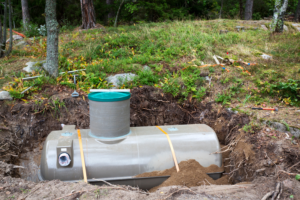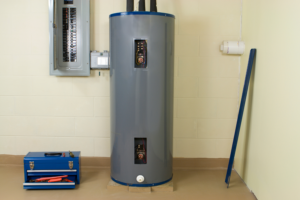A sewer gas odor can come from your household septic system or the sanitary sewer system. If you notice a foul smell that is causing a problem in your home, it may be sewer gas.
WHAT IS SEWER GAS?
Septic StenchSewer gas is a complex mixture of toxic and non-toxic gasses that can be present at varying levels depending upon the source. It is formed during the decay of household waste, typically the anaerobic decomposition of sewage and sludge.
Sewer gas is mostly methane, which is odorless, but it’s almost always mixed with other gasses, the most common being hydrogen sulfide (chemically, H2S). Sewer gas can also contain ammonia, carbon dioxide, sulfur dioxide, nitrogen, and, hydrogen. Methane gas can displace oxygen, especially in a confined space, and be deadly.
The hydrogen sulfide gas results from decomposing organic material and can be produced by human and animal wastes. At low levels, it has a strong odor similar to rotten eggs. Under normal conditions, hydrogen sulfide is colorless, flammable gas. Besides the offensive odor, sewer gas can be hazardous, especially over an extended period.
IS IT DANGEROUS?
Fortunately for us, we can generally smell Hydrogen Sulfide (H2S) at very low levels and far below what could be toxic so smelling the gas does not always mean that it will make you sick. However, at higher levels, your nose can become overwhelmed by the gas, and we lose our ability to smell it. At higher levels, H2S gas can make you sick and could be fatal. Although hydrogen sulfide is a toxic gas, it will not harm people at the concentrations that exist in a house with sewer gas odor problems. Not enough gas is generated in the sewers for concentrations to approach the dangerous level in the home.
However, if a person were to enter a tunnel, hole, or tank that contained sewage undergoing anaerobic breakdown (such as your septic tank), there is a chance he or she could become poisoned and the impact could be fatal. Never enter your septic tank. This is a job best left to trained professionals. If your tank requires inspection, call FloHawks. We have the proper training, equipment, and expertise to safely get the job done.
WHERE DOES IT COME FROM?
Smelling Sewer GasSmelling sewer gas in your home means that something, somewhere along the plumbing lines isn’t working as it should. A common source of sewer gas odors in the home is a “dry trap.” All drains to a sewer system have a “P” shaped trap that is usually filled with water, which provides a seal to keep out sewer gas. A dry trap occurs when a sink, shower, floor drain, or toilet is not used for a long time, and the water in the trap eventually evaporates out, allowing the sewer gas to enter. If you have a dry trap, the solution is relatively simple – you can pour a quart or so of water into your sinks, showers, tubs, and floor drains to make sure the unused drain traps are filled with water.
Another possible source of sewer gas is a break or leak in the sewer drain line that allows sewer gas to seep into a crawl space or basement, and then into your home. Clogged drains or a blockage at the septic tank can also cause sewer gasses to back up into the building. Unfortunately, this solution is not a simple do-it-yourself. But FloHawks can help.
Our trained and experienced professionals provide inspections, line cleaning, and can repair your system to get it back in working order – without the extra sewer smells. Call FloHawks anytime at 1-800-356-4295 or use our convenient Schedule Your Service to schedule a time that’s best for you.











